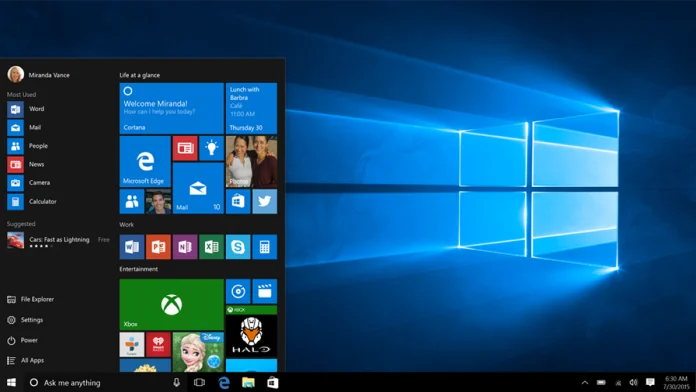Microsoft will end support for Microsoft 365 apps on Windows 10 starting in October 2025, encouraging users to upgrade to Windows 11. However, Extended Security Updates will be offered for those who postpone the upgrade.
Microsoft has revealed that support for Microsoft 365 apps, formerly known as Office apps, on Windows 10 will officially end on 14 October 2025. This aligns with the broader end-of-support timeline for the Windows 10 operating system. As a result, users who continue to rely on these apps after this date will no longer receive updates, including security patches and new features, unless they transition to Windows 11.
The end of support will affect both individual users and businesses that use Microsoft 365 apps on Windows 10. These users will need to upgrade to Windows 11 to ensure they maintain access to the latest features and ongoing security updates. This change is part of Microsoft’s broader strategy to encourage adoption of the latest operating system, which offers improved performance, security, and compatibility with newer technologies.
For those who are unable or unwilling to make the switch to Windows 11 by the deadline, Microsoft will offer Extended Security Updates (ESU). This option will provide essential security patches and bug fixes for a limited time, helping to protect systems that remain on Windows 10 after the official end-of-support date. However, users will miss out on the full range of new features and improvements available with Windows 11.
Once support for Office apps on Windows 10 ends, Microsoft will no longer provide updates or official assistance for these applications. However, the apps will not stop working immediately. As stated in a support document updated in December, the apps will “continue to function as before,” but users may begin to experience “performance and reliability issues over time.” This means that without new updates or fixes, users could face bugs, security vulnerabilities, or declining performance.
Microsoft is strongly encouraging users to upgrade to Windows 11, as it aims to drive adoption of its latest operating system. During CES 2025, Yusuf Mehdi, Microsoft’s executive vice president and consumer chief marketing officer, referred to 2025 as “the year of the Windows 11 PC refresh.” He highlighted the critical need to prioritize upgrading to Windows 11, stressing that the investment in a new PC should take precedence over other consumer purchases, such as TVs or mobile phones.
The company’s push to upgrade is part of its broader effort to ensure users benefit from the latest advancements in security, performance, and functionality that Windows 11 offers. By making the transition, users can continue to enjoy a supported, secure, and optimized experience with Microsoft 365 apps, avoiding potential issues caused by the lack of ongoing updates on Windows 10.
The adoption of Windows 11 has been slower than anticipated, largely due to its stringent hardware requirements. Many older PCs are incompatible with the new operating system because they don’t meet Microsoft’s mandatory Trusted Platform Module (TPM) 2.0 requirement. This requirement is considered “non-negotiable” by Microsoft, meaning that a significant number of Windows 10 users will need to invest in new hardware to make the upgrade. To encourage adoption, Microsoft has started displaying full-screen prompts on older PCs, urging users to purchase Windows 11-compatible systems.
For those unable to upgrade right away, Microsoft is offering Extended Security Updates (ESU). Consumers can pay $30 for an additional year of updates, while businesses have the option to purchase up to three years of extended support. This option allows users to maintain security updates without upgrading to Windows 11 immediately.
The phased end-of-support approach is typical for older software, where updates are gradually discontinued over time. While upgrading to Windows 11 is necessary for ongoing support, it presents challenges for users with older hardware, potentially creating additional costs for both consumers and businesses. For those still running Windows 10, it may be a good time to evaluate whether to upgrade hardware or opt for extended support to ensure continued security and functionality.



 Viesearch - The Human-curated Search Engine
Blogarama - Blog Directory
Web Directory gma
Directory Master
http://tech.ellysdirectory.com
8e3055d3-6131-49a1-9717-82ccecc4bb7a
Viesearch - The Human-curated Search Engine
Blogarama - Blog Directory
Web Directory gma
Directory Master
http://tech.ellysdirectory.com
8e3055d3-6131-49a1-9717-82ccecc4bb7a